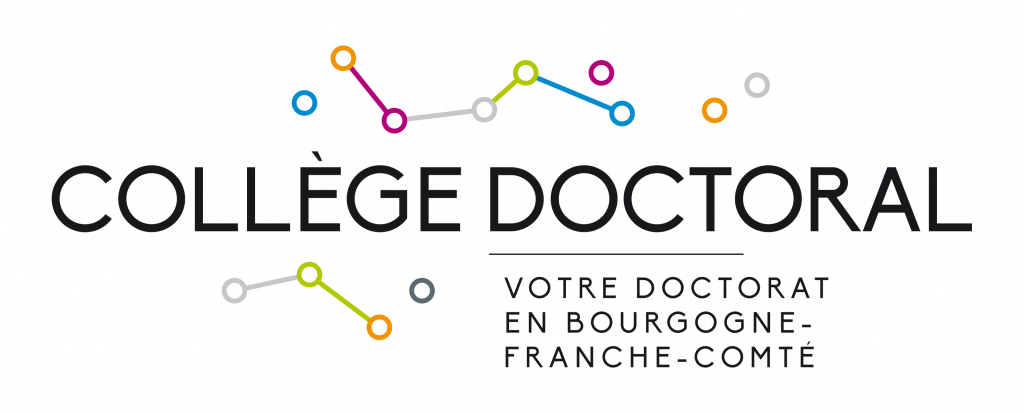And After A PhD?
A high-level profile and skills
The doctoral experience provides you with cutting-edge scientific and technical expertise and skills…
…But it also enables you to develop a wide range of skills that are transferable to all sectors of activity, and are listed in the national Register, called Répertoire National des Certifications Professionnelles (RNCP) (see opposite).
https://www.francecompetences.fr/recherche_certificationprofessionnelle
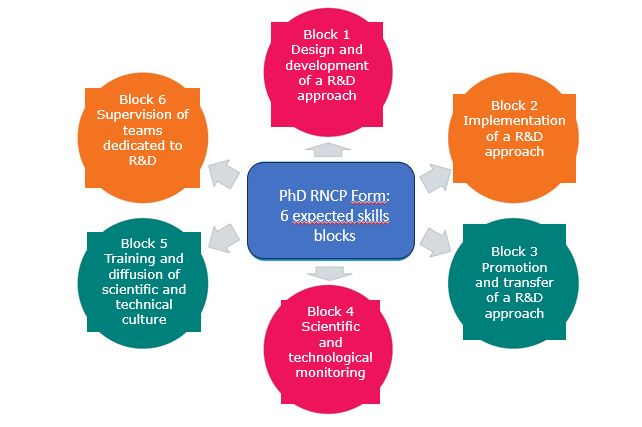

A lot of social skills and soft skills are also attributed to PhDs by socio-economic and employment players.
Some figures on the career development of PhDs in Burgundy-Franche-Comté
The following figures are taken from a survey conducted in 2021-2022 on the cohorts of 2018 and 2020 PhD graduates.
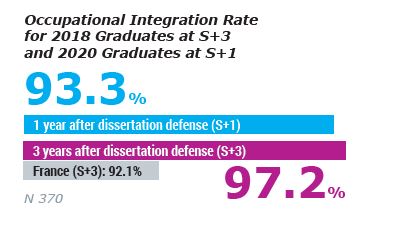
Taking into account all the PhDs interviewed in a career follow-up survey conducted in 2021 on the 2018 and 2020 cohorts, we obtain the following results:
- the integration rate of UBFC PhD graduates one year after graduation is 93,3 %.
- It rises to 97.2% three years after graduation.
Please note : The professional integration rate is calculated on the basis of the working population, and therefore does not include people who are continuing their studies or who are not looking for work.
A majority of BFC PhDs hold managerial level positions
Among UBFC PhD graduates in employment, the rate of managers is 85.2%, a stable rate since the IPDoc 2018 survey (84.8%).
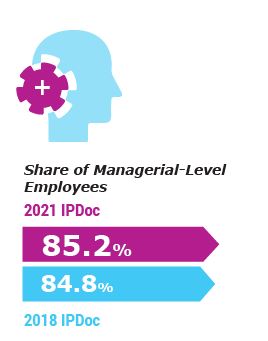
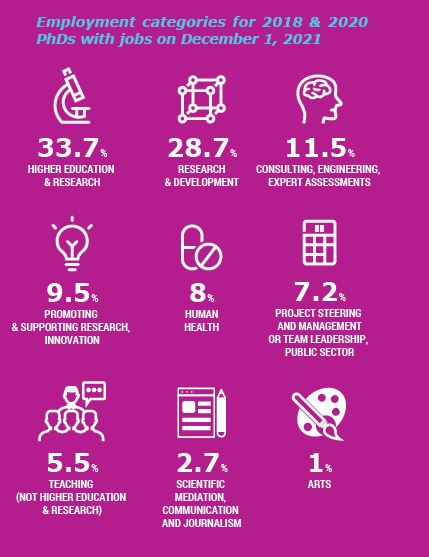
Categories of activities of working PhDs
The main professional activities of PhD graduates are related to higher education (33.7%) and research and development (28.7%).
These activities can be found, for example, in the profession of lecturer (after obtaining the CNU qualification), or that of R&D engineer in a company.
A significant proportion of PhDs are involved in consultancy, studies and expertise (11.5%), and PhDs working on projects to development and support of research innovation (9.5%).
To find out more
- Find all the figures on the career development of UBFC PhDs in the new publication “UBFC PhDs 2021 IPDoc Survey early career tracking”: French and English versions.
- Find other publications in the career statistics section of the website.
- To get an idea of the range of career possibilities after a PhD, do not hesitate to attend and/or (re)watch the replays of our online career afterwork sessions “Voies de docteur-e-s”, during which current PhD graduates (in academic or extra-academic employment) talk about their career paths.
